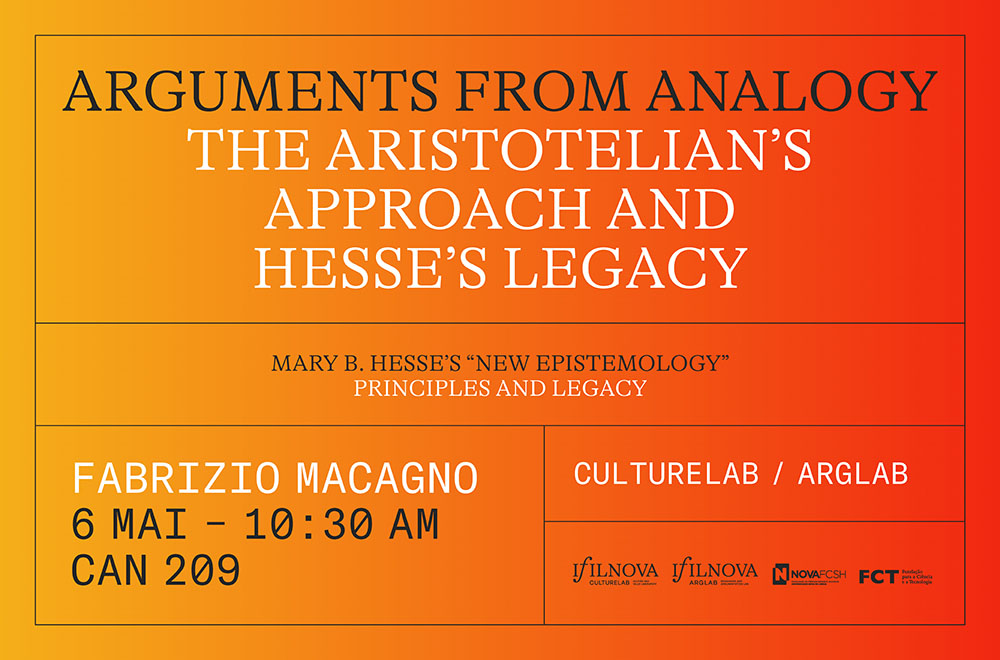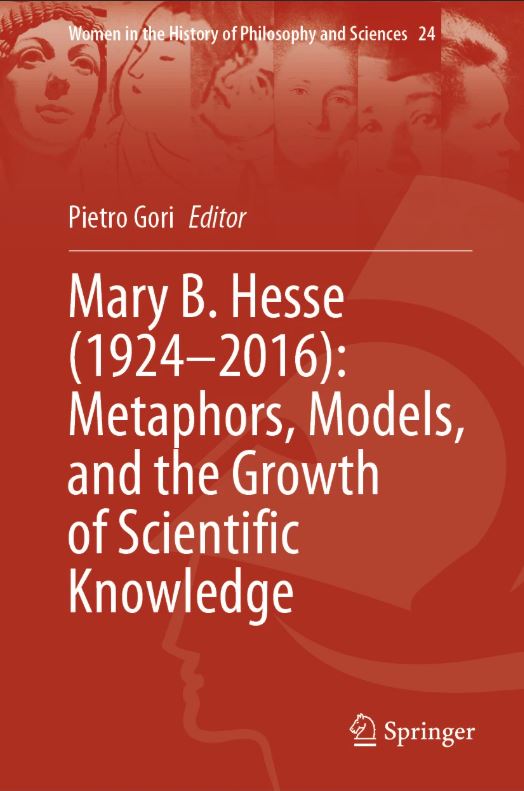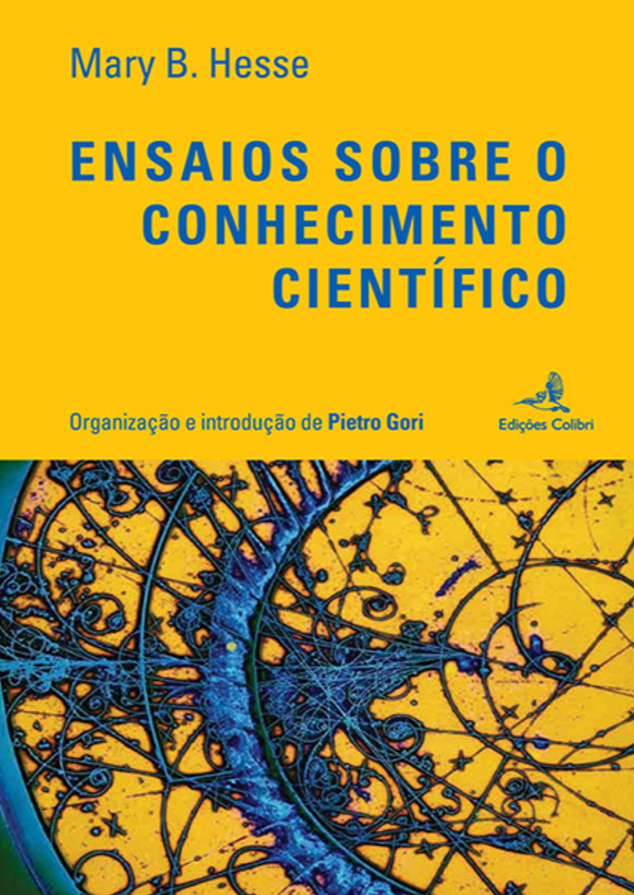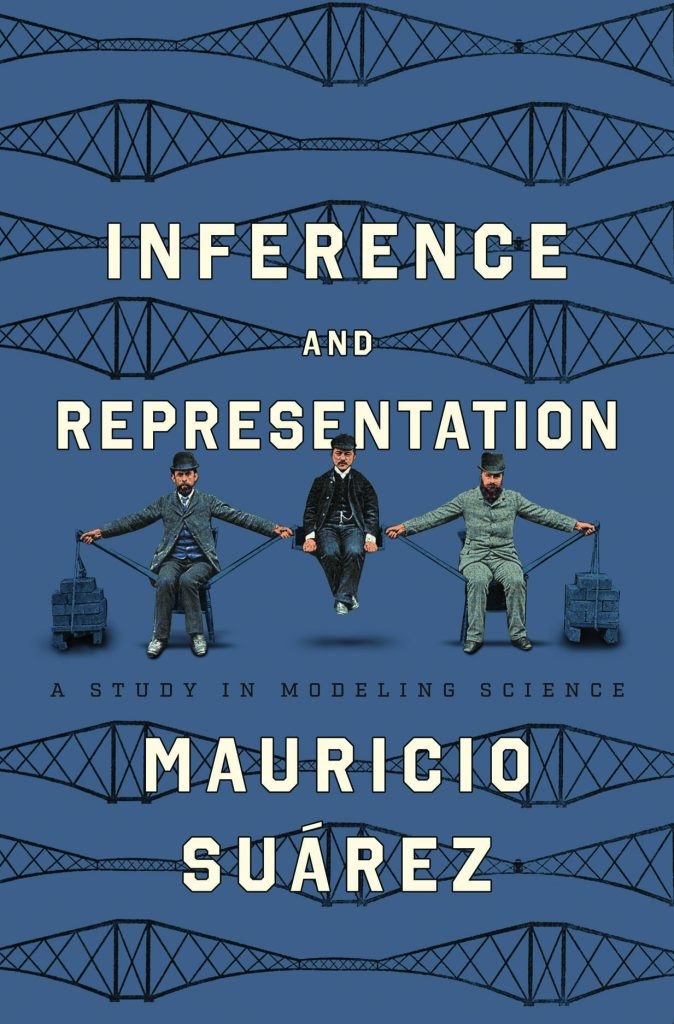Categories
Tag: mary hesse
Categories
New publication
The volume “Ensaios sobre o conhecimento científico“, edited by Pietro Gori, has recently been published, collecting selected texts by Mary Hesse translated into Portuguese for the first time.
The essays published in this volume outline the theoretical path developed by Mary Hesse and show the challenges that her view of scientific knowledge pose for contemporary philosophy.
As much as the work of well-known authors such as Paul Feyerabend and Thomas Kuhn, Hesse’s philosophical reflections stimulated the debate on the value and limits of scientific knowledge and contributed to the development of a broader approach to classic questions in the philosophy of science, an approach that includes methodologies and theoretical content from other disciplines: primarily the history of science, but also sociology and hermeneutics.
Further information on the volume can be found here.
On 11 November 2024 at the Center for Philosophy of Science of the University of Lisbon (CFCUL), María de Paz (Univ. Seville), Silvia di Marco (CFCUL), and Pietro Gori (IFILNOVA) will meet to discuss about Mary Hesse’s view of scientific knowledge.
During the meeting will be launched the book “Ensaios sobre o conhecimento científico” (Colibri, Lisboa; ed. P. Gori), that collects key papers on scientific knowledge by Mary Hesse, translated for the first time into portuguese.
The meeting will take place at the Faculty of Science of the University of Lisbon, room 6.2.44, starting 4 PM.
Categories
Diectory entry on Hesse
Helene Scott-Fordsmand has recently contributed an insightful directory entry on Mary Hesse (1924-2016) for the Directory of Women Philosophers.
Follow this link to read Helene’s account of Hesse’s legacy and her impact on modern philosophy.
Categories
Symposium on Mary Hesse
The fifth biennal congress of the International Society for the History of Philosophy of Science that will start next week in Vienna will host a symposium devoted to “Mary B. Hesse’s Philosophy of Science and Her Legacy”.
The symposium has been organized by María de Paz, bringing together four different perspectives on Hesse, to discuss her work on the occasion of the centenary of her birth. The papers will focus on major themes explored by Hesse, as well as on her philosophical background:
– “Wittgenstein and Hesse on Metaphors and Family
Resemblance” by David Hommen;
– “Mary Hesse to the Rescue in Contemporary Realism Debates” by Laura Bujalance Fernández-Quero;
– “Hesse’s Modified Realism and Science as a Process” by María de Paz and María J. Gutiérrez-Márquez;
– “Expanding the Epistemological Framework of Natural Science: Mary Hesse (and Thomas Kuhn) on Hermeneutics, Translation, and Interpretation” by Pietro Gori.
Take a look at the complete program of the HOPOS 2024 conference here.
Categories
Inference and Representation
On November 24th, 2023, at 5PM (London/Lisbon), Mauricio Suárez will present his new book on “Inference and Representation” (UCP 2024) at the Institute of Philosophy of the NOVA University of Lisbon. The book launch will also be transmitted online.
In this book, Suárez develops a conception of representation that delivers a compelling account of modeling practice. He begins by discussing the history and methodology of model building, charting the emergence of what he calls the modeling attitude, a nineteenth-century and fin de siècle development. Prominent cases of models, both historical and contemporary, are used as benchmarks for the accounts of representation considered throughout the book. After arguing against reductive naturalist theories of scientific representation, Suárez sets out his own account: a case for pluralism regarding the means of representation and minimalism regarding its constituents. He shows that scientists employ a variety of modeling relations in their representational practice—which helps them to assess the accuracy of their representations—while demonstrating that there is nothing metaphysically deep about the constituent relation that encompasses all these diverse means.
The book also probes the broad implications of Suárez’s inferential conception outside scientific modeling itself, covering analogies with debates about artistic representation and philosophical thought over the past several decades.
To join the session on Zoom and receive 30% discount voucher to buy the book, please register at this link.
Categories
Nice article on Hesse
The 2022 article “The lady vanishes” by Ann-Sophie Barwich, published on the online magazine AEON, is devoted to Mary Hesse. It is an interesting peice where Barwich argues that “the overwhelming absence of women in intellectual history is constructed. And we won’t prevent the fading of women from future history simply with an occasional reminder about the existence of a few remarkable individuals throughout the ages. What really causes our collective forgetting is the stepwise removal of their names from ongoing conversation.” For Barwich, “the story of Mary Hesse shows how quickly even well-known women from our recent past can vanish from the collective memory of their peers.”
Hesse was different. Her ideas present a refreshing departure from her contemporaries’ single-minded infatuation with the logic and justification of scientific knowledge and the idea that the rationality of philosophers ruled the foundation of science.
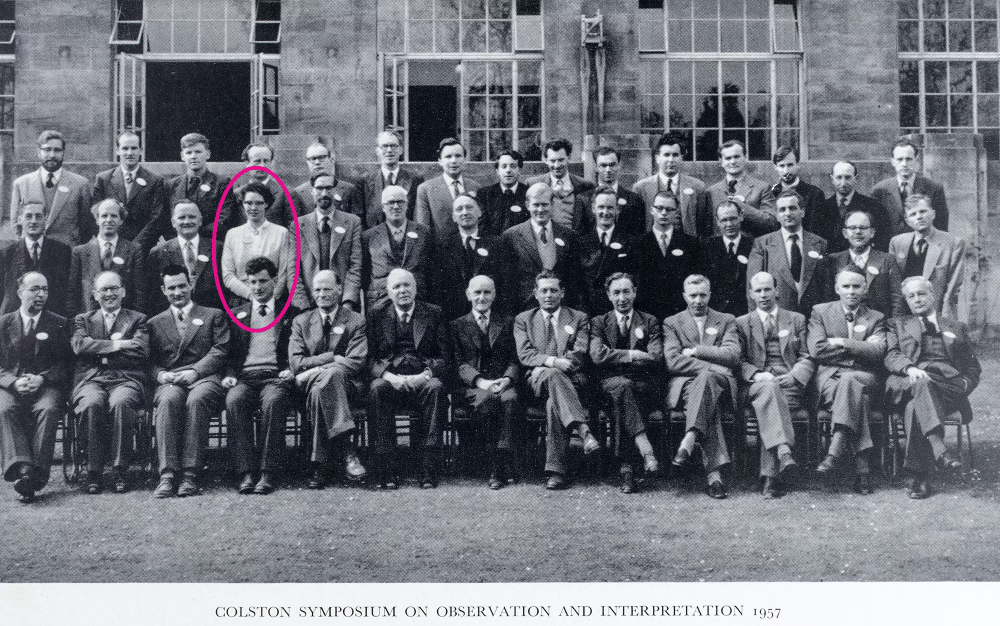
Categories
Pietro Gori @EPISTRAN preliminary meeting
In the occasion of the EPISTRAN preliminary meeting that will take place on July 2023, 13th and 14th (NOVA/FCSH + online), Pietro Gori will deliver an exploratory paper titled “Expanding the epistemological framework of natural science. Mary Hesse (and Thomas Kuhn) on Hermeneutics, Translation, and Interpretation“.
The paper will be focused on Mary Hesse’s hermeneutic approach towards scientific knowledge, in relationship/comparison with Thomas Kuhn’s reflections on translation and interpretation in science.
The EPISTRAN project is financed by the Portuguese Foundation for Science and Technology, through CETAPS’ strategic programme, references UIDB/04097/2020 and UIDP/04097/2020. It also enjoys the collaboration of the following research centres: CHAM, CICS, CRIA, CLUNL, IFILNOVA, CEAUL, CECC
Categories
SciRep 2023
The programme of the conference “The Value of Scientific Representation. Classic Issues and Contemporary Challenges”, is out!
Take a look at it at this link.
The conference takes place at the NOVA University of Lisbon on June 21st-22nd, 2023.
Keynote Speakers: Alisa Bokulich (Boston University) and Michela Massimi (The University of Edinburgh).
Organized within the activities of the research project “Mary B. Hesse’s ‘new epistemology’. Principles and Legacy” (FCT/IFILNOVA), The conference aims to explore issues from the current debate on scientific representation that may be – directly or indirectly – connected with Mary B. Hesse’s theoretical understanding of science. On a general level, the speakers will engage with open questions related with the value of the scientific world-explanation from a variety of viewpoints that shall not be limited to a philosophical or linguistic analysis of the issues explored, but may also involve contributions devoted to classic figures of the history and philosophy of science.
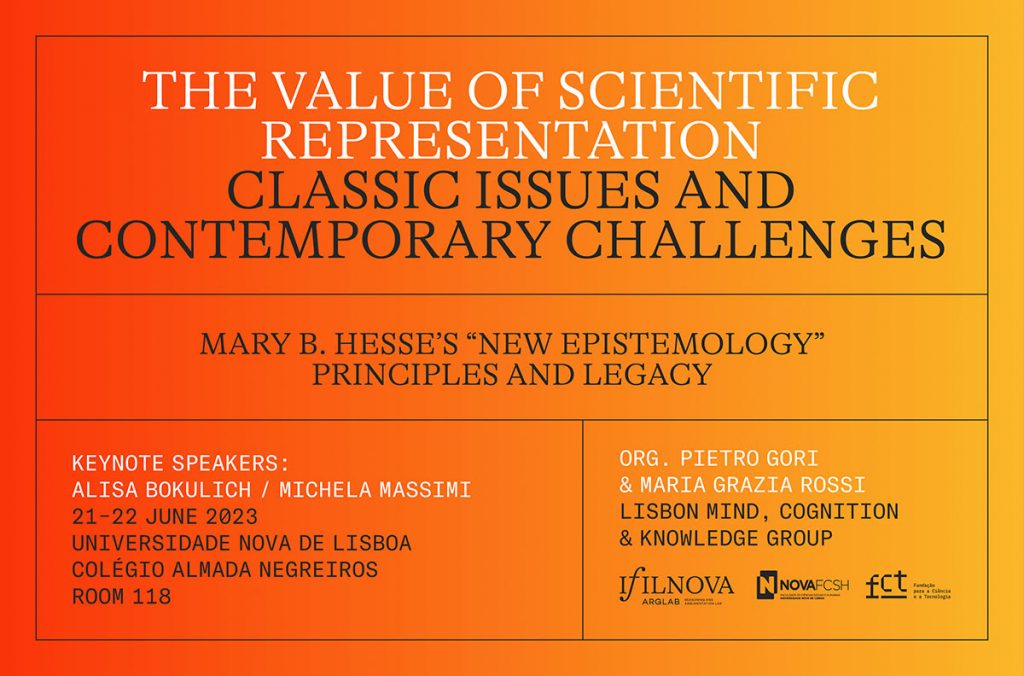
Categories
Arguments from Analogy
On May 6th, 2022 (10:30 Lisbon/London Time), Fabrizio Macagno (IFILNOVA) will deliver a paper on Arguments from analogy. Aristotelian’s Approach and Hesse’s Legacy.
Argument from analogy is a fundamental type of explicit reasoning, whose uses and applications are deeply investigated in argumentation theory, law, education, and artificial intelligence. Its structure is commonly analyzed as a combination of an inductive and a deductive process – leading from the observation of some common features to a generalization, from which a particular conclusion is drawn. The claim that this presentation intends to defend is that analogical arguments can be analyzed as meta-arguments, or rather as the expression of different types of argument. In this perspective, analogy is regarded as a strategy for supporting a conclusion through different types of argumentative (inferential) relations.
The session can be attended online by registering at this link.
